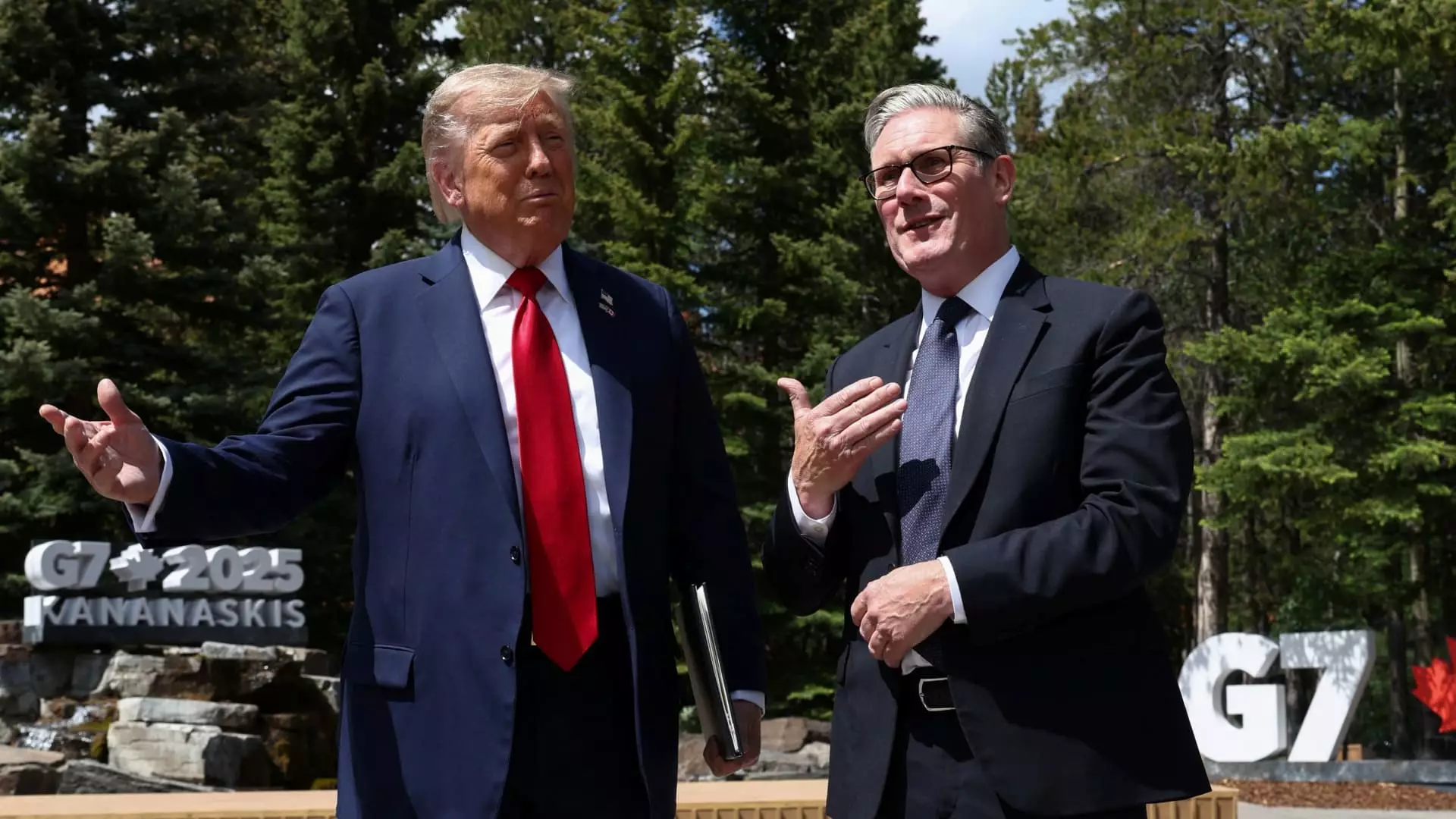The recent trade agreement signed between U.S. President Donald Trump and British Prime Minister Keir Starmer ostensibly marks a groundbreaking step in Anglo-American relations. However, upon closer inspection, it unfurls a much more complex narrative—one fraught with unresolved issues and conditional stipulations that potentially undermine the deal’s claimed significance. While governments bask in the glow of diplomatic camaraderie, it is crucial for the citizenry to question whether this “fantastic” relationship is built on solid ground or is merely an illusion of strength designed to buffet the egos of both leaders.
The Glaring Oversights
Much of the fanfare surrounding the announcement centers on the tariff reductions affecting British automobiles and the aerospace sector. Eliminating tariffs in these industries is undoubtedly a welcomed development and serves to bolster the relationship between the U.S. and the UK. However, vital sectors like pharmaceuticals are glaringly absent from the discussions, raising alarm bells about whether the deal genuinely serves the interests of either country’s broader economic landscape. The omission of such an important sector signals a troubling lack of foresight; while negotiators were busy creating fireworks, they neglected to address substantive industries that impact health, innovation, and ultimately, citizens’ lives.
Conditional Relationships: A Double-Edged Sword
Consider the quotas on steel and aluminum imports, which come with strings attached. Britain must demonstrate security on supply chains and production facilities if it is to avoid the punitive tariffs binding other nations. Such contingencies indicate that while the U.S. may present a friendly façade, it retains a transactional approach—one that puts Britain’s economic stability in a precarious position. Why should the UK be forced to satisfy additional criteria when a trade agreement should ostensibly function as a mutual benefit? This convoluted process does not create an environment of trust but rather sows the seeds of anxiety and uncertainty.
Short-Term Gains vs. Long-Term Solutions
Starmer’s assertion that this marks a “very good day” for both nations begs scrutiny. Certainly, it can be viewed as a short-term win, giving a positive spin to a somewhat piecemeal arrangement, but one cannot help but wonder what kind of long-term stability this trade deal truly offers. It reflects a reluctance to engage in comprehensive policy-making that would ensure tangible benefits for both societies. The ethos of any meaningful trade agreement lies in its ability to withstand the test of time and provide continual support for critical sectors—something this agreement might fail to deliver.
Trade Agreements as Political Statements
It’s difficult not to see this initial agreement as a calculated political maneuver rather than a genuine effort to elevate both economies. Trump’s exuberant proclamation that the UK is “very well protected” because he “likes them” does little to ingratiate confidence in the robustness of this trade relationship. Such flippant remarks trivialize the significance of international trade agreements and reduce them to mere presidential whims. If these deals are to mean anything, they should be fortified by sound policies and mutual respect, rather than arbitrary affection.
A Call for More Robust Engagement
As citizens of two historically intertwined nations, it is time to urge leaders to move beyond rhetoric and toward a more synergistic approach to trade policy. The agreements on beef and ethanol symbolize a desire for reciprocal treatment, but they only scratch the surface of what could be a deeper, more meaningful partnership. Trade agreements should push boundaries, promote technological advancement, and protect citizens from the vicissitudes of political maneuvering. What is at stake is not just the prosperity of current generations but the well-being of future leaders who will inherit the fragile economic framework laid before them.
The pressing question that looms is: Will this trade deal pioneer a fresh era of prosperity, or will it fall prey to the same fate as many political promises, fading away under scrutiny? One can only hope that the answer lies in the hands of responsible governance rather than a fleeting presidential whim.


Leave a Reply